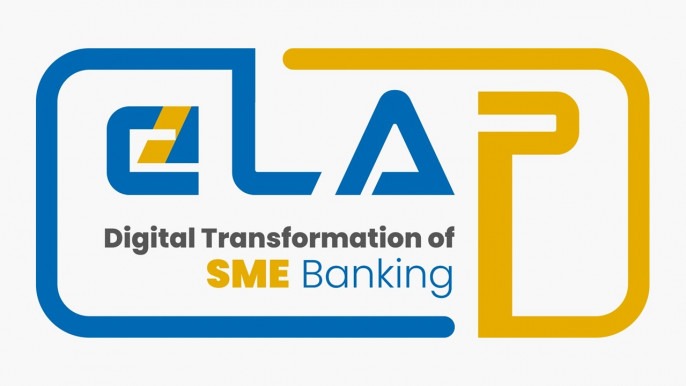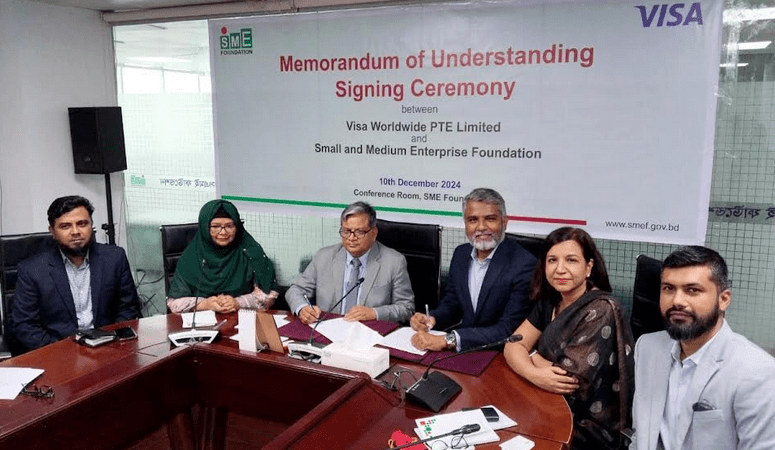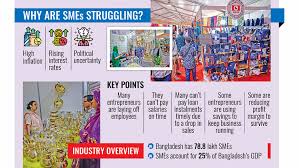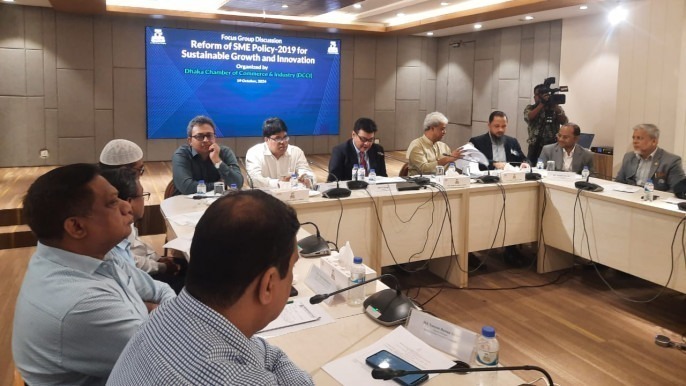Policies for SMEs to find their way towards ESG

Small and medium-sized enterprises (SMEs) are the lifeblood of economic development, especially in countries like Bangladesh. Yet, they face a number of challenges that hinder their growth and sustainability. Enabling these enterprises to align with Environmental, Social, and Governance (ESG) principles is crucial for them to sustain in the changed global trading environment. A world where SMEs can smoothly incorporate sustainable practices is not only beneficial for their business but also essential for a thriving future in the industry.
However, the journey toward ESG alignment isn’t smooth. One of the biggest obstacles for SMEs is access to funding with favourable terms. Without enough financial resources, innovative ideas, particularly those related to sustainable practices and cleaner technologies, are difficult. Many SMEs work as indirect exporters, caught in situations where the costs and support required for sustainability are lacking. This creates a vicious cycle where the absence of an enabling environment for sustainable practices suppresses initiative.
The world of technology and expertise is another challenge to overcome. Many SMEs lack the knowledge and tools necessary to effectively incorporate ESG principles. Even when they have the desire to improve, the lack of technology makes the task difficult.
Besides, financial challenges posed by policies and regulations like the National Board of Revenue’s (NBR) restriction on non-bonded factories present difficulties, and the recent cuts in export incentives have further complicated the competitive scenario for SMEs.
So, how do we overcome these challenges? The first priority is to formulate an appropriate policy for RMG SMEs, ensuring financial and other policies are structured to make finance and technology more accessible. Addressing barriers such as accessing green finance is crucial. Another important consideration is implementing an exit policy and export credit guarantee. Although SMEs act as gateways for young entrepreneurs in industries like RMG, they frequently encounter challenges such as unforeseen situations like buyers’ non-payment and bankruptcy, as well as operational difficulties that can lead to closure. These challenges are frequently embedded in complex compliance requirements, which can be overwhelming. Given their vulnerable nature, SMEs would greatly benefit from an exit policy and export credit guarantee that protects them from economic shocks.
Furthermore, as Bangladesh transitions out of the Least Developed Country status, accessing low-cost global finance will become more challenging. Offering SMEs separate tax brackets and favourable interest rates would empower them to invest more effectively in ESG and innovation.
The solution may also lie in innovative supply chain practices. Relocating SMEs into clustered zones or “integrated parks” offers a promising solution. Imagine factories within these zones sharing resources like effluent treatment plants and renewable energy facilities while complementing each other as parts of a single supply chain. This communal approach would enhance ESG practices while simultaneously reducing individual costs.
If SMEs can harness the power of circular fashion and virtual marketplaces, they can elevate their positions. Their flexibility in handling smaller order quantities makes them uniquely positioned to capture the eco-conscious segment of the global market.
With the right support, SMEs can become beacons of sustainable innovation and economic strength in Bangladesh. By fostering their alignment with ESG principles and removing growth barriers, they can not only thrive in global markets but also contribute profoundly to a sustainable future for all.
Source: The Daily Star | 4 November 2024 | Author: Mohiuddin Rubel







